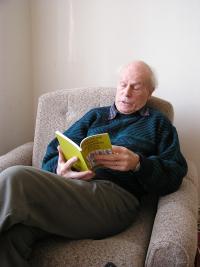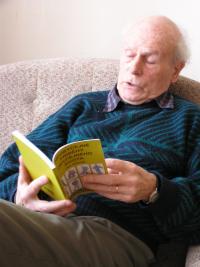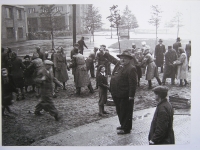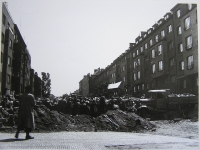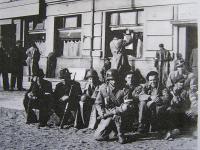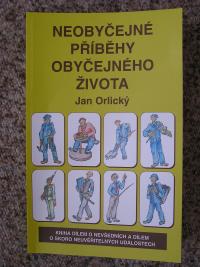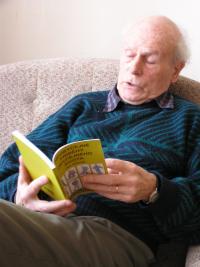We hanged out the flags regardless the shooting. The shooting quickly ceased, because suddenly the street was covered with flags
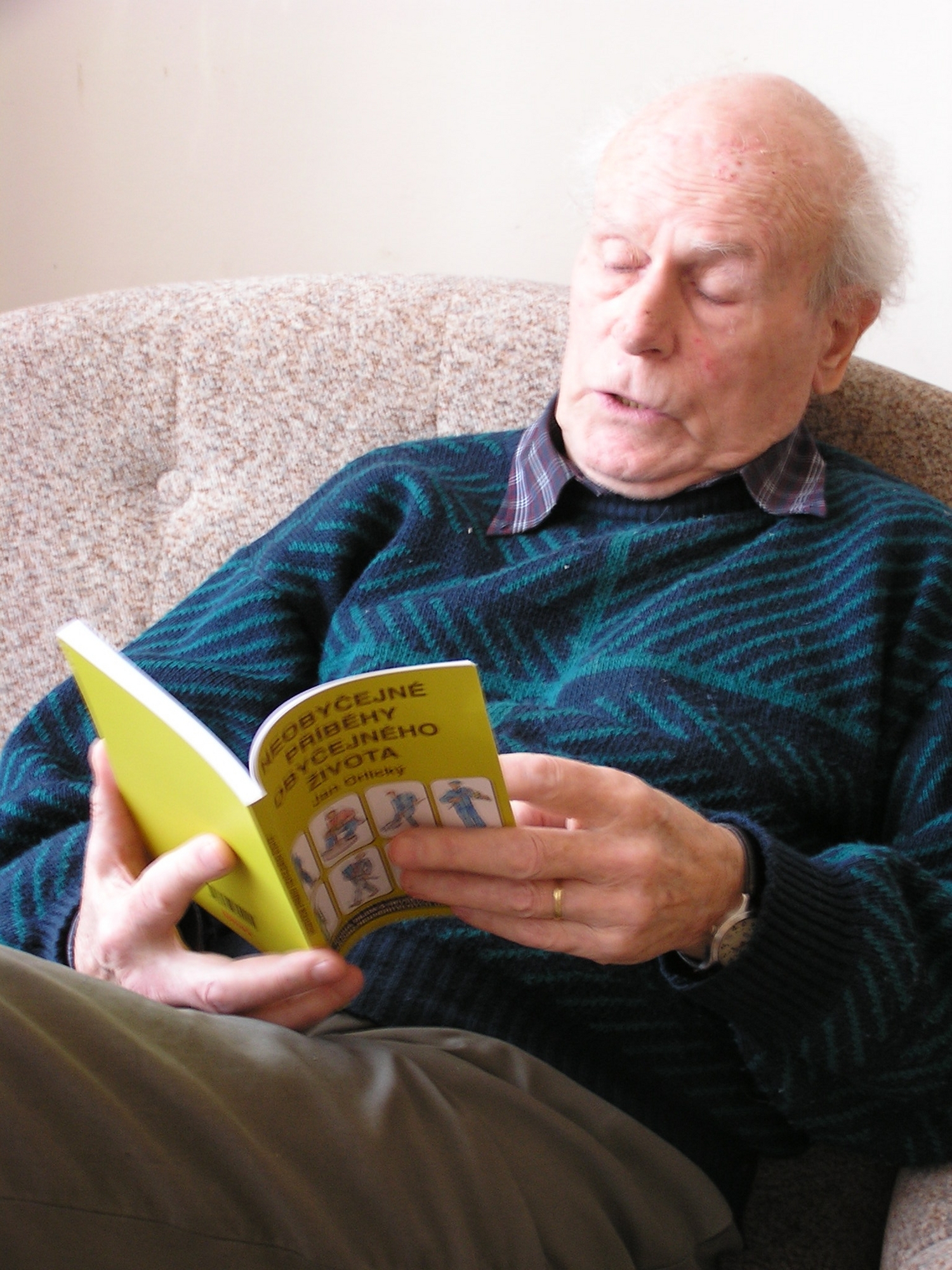
Download image
PhDr. Jan Orlický was born on 14th November 1924 in Prague. After Orlicky finished a high school he was called to forced labor into the Third Reich in Upper Silesia in a mountain chain Harz. In time the frontline approached the camp after the Easter 1945, he escaped to Czechoslovakia. In Prague he took active role in the May uprising. He had been disarming Germans and he took part in building barricades as well. After the war he had studied philosophy and sociology at Charles University. Two years he worked as temporary teacher in the borderland. Then he had to take up job in coal mines near Kladno in order to get permission to return to Prague at the beginning of the fifties. In Prague he shortly worked in The Enlightenment institute of ÚNV Praha, until he was fired for criticizing a communist functionary. Then he had passed trough several manual jobs till he got a place at Academy of Science as a documentarist. After he signed a resolution supporting Dubcek’s leadership he was fired again, but he succeeded to pretend a mental illness until he got an invalidity pension. Finally Orlicky choose a literary career. He wrote more than ten books.
